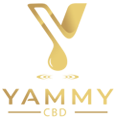Posted by Yammy CBD on Aug 4th 2022
Labeling and COAs Are Important to Us – Here's Why
Regular Yammy CBD customers are familiar with the certificate of analysis (COA). They know that we are sticklers about COAs and proper labeling. As we see it, customers have a reasonable expectation of transparency when they buy hemp products. We believe it is our obligation to provide that transparency.
Simply put, proper labeling and COAs are important to us. Why? Because they are the best available method for us to communicate to customers exactly what they are buying. We are not in this to sell product with no regard to what it actually contains. We're in this to provide our customers with safe and effective CBD products they can trust.
Unfortunately, not every player in the CBD industry sees things that way. Inaccurate labels are a big problem in the CBD space. Whether mislabeling is intentional or accidental, it is a problem that can be corrected. Moreover, it should be corrected.
Too Many Mislabeled Products
Several studies conducted in recent years demonstrate that there are far too many mislabeled products in the marketplace. One such study was conducted in the Baltimore, MD area during the summer of 2020. The results of that study are just beginning to circulate.
Researchers at Johns Hopkins Medicine wanted to know just how accurate CBD labeling is. They purchased and tested 105 CBD products including patches, lotions, and creams. What they found is not good.
For example, they discovered that some products contained THC despite labels that said otherwise. Imagine being a customer purchasing what you believe is a THC-free product, only to find out later that it did contain THC.
Researchers also discovered that only eighty-nine of the 105 products listed the total amount of CBD on their labels. Furthermore:
- 58% contained more than the label stated
- 18% contained less than the label stated
- 24% had the volume of CBD stated on the label.
Getting back to the THC issue, thirty-seven of the products contained the cannabinoid. Fortunately, the volume of THC in all cases was below the 0.3% threshold required by federal law.
Testing Products Independently
Giving manufacturers the benefit of the doubt, we will assume that most of the mislabeling is accidental. Still, such mislabeling doesn't have to occur. The best way to prevent incorrect labeling is to have products independently tested and analyzed. That is the whole point of the COA.
All the CBD products we source come from manufacturers who voluntarily submit their products to independent labs for testing and analysis. The products come back from the labs with a COA detailing exactly what is in them. If an analysis reveals that a product doesn't match its labeling, the manufacturer can either change the label or rework the formula.
Independent testing is a pretty robust industry. This is to say that manufacturers cannot avoid testing and blame it on the fact that there are not enough labs to do the work. That is not the case. Testing is readily available throughout the country. Manufacturers are free to avail themselves of it at any time.
Government Regulation Coming
Given that CBD products are so frequently mislabeled, it would make sense that stronger government regulation is coming. Regulators in multiple states are already talking about it. So is the FDA.
Federal or state standards would go a long way toward ensuring transparency. We should not have to rely on government regulations to get accurate CBD labeling, but that is the state of the industry right now. Here at Yammy CBD, we are proud to say that we don't contribute to the problem. We take accurate labeling and COAs seriously. You deserve nothing less.


